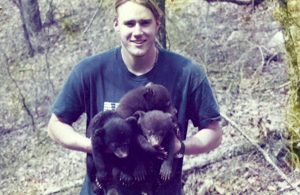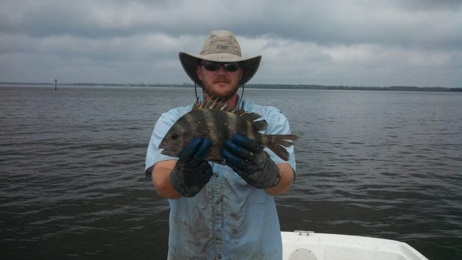What do you currently do?
I currently work as a research scientist/ecologist at the Institute for Marine Mammal Studies in Gulfport, MS. Our research program is designed to answer questions about the population health and ecology of indicator species in the Mississippi Sound. Our current emphasis is on bottlenose dolphins (Tursiops truncatus) and Kemp's ridley sea turtles (Lepidochelys kempii), both of which are apex predators and serve as excellent bioindicators. A major focus currently is quantifying population size and predicting spatial distributions of these species.
Why did you pick App State for graduate work?
Having grown up in southern Alabama, the mountains of NC were very exotic in my mind. I fell in love with Boone after only a couple of visits and found my place there pretty easily. I actually worked for Dr. Gary Walker for the first six months before I enrolled in classes, and I think during this time my encounters with faculty and students were all very positive. I can honestly say that I loved that time in my life as much as any.
Did getting your MS degree help you with your current career? How?
Absolutely. It was foundational for me as a scientist because I started understanding the research process. To complete the program, I had to learn to plan effectively, collaborate, and have discussions with faculty, all of which helped me grow as a scientist. I also took some really great courses there and made friends that are still very influential. A friend I met at App State actually helped me get the job I have now.
 Do you have any advise/tips to give to current graduate students for their time here and career choices?
Do you have any advise/tips to give to current graduate students for their time here and career choices?
The first thing is to be consistently persistent. I think in research it's easy to become overwhelmed because you can't see the light at the end of the tunnel sometimes. It's really all about planning and making small strides everyday that will lead to success. Even when you make mistakes and you feel like you are taking steps backwards, you are learning. Just don't give up.
Secondly, I would say to grad students and future grad students....don't pigeon hole yourself too much. Be willing to work on, learn about, or get involved with different types of projects. We have an internship program here and many of our interns would like to go on to grad school. A lot of them only want to work with marine mammals, and I always tell them to be open to doing other types of work. The skills and learning the process of doing research that you get in grad school are the important parts. If you get that stuff down, the organism or system you are working with can change and you'll be just fine.

